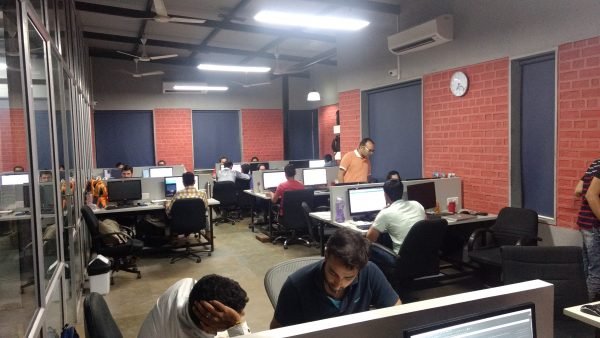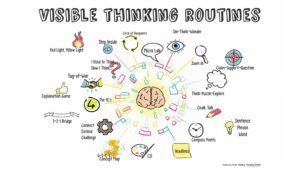5 minutes read
Thoughts on Open CultureI have been an HR professional for more than a decade now (after transitioning from a developer) and during this I have heard the term “Open Culture” infinite number of times. Well, it can’t be same for everyone as every organisation is different. So today I am seeking an answer to this question:
What is an Open Culture and have we succeeded in building one at Digicorp?
Digicorp was started back in 2004 by 4 computer engineering friends.
Inspired from FogCreek’s philosophy, we believed that we will sustain only if we have a motivated, self-organised and committed team. So we made people our biggest priority and defined the way we work. Just the way HCL (a much bigger organisation) did with “Employees First, Customers Second” later on.
So, let me help you with a few instances and have you decide whether we really have such culture, one that we boast of to be unique, creative, free and motivating?
Default Behaviour
How do you handle a perpetually late employee?
Well, there are a few ways to handle this. One, you criticise him. Two, you start penalising him and the third way is counselling and mentoring. We too tried all these ways and came up with our own.
We coined the term Default Behaviour. It is a set of few simple rules, which Digicorpians need to adhere to, for better synergies in work. Since we deal with humans (and that too creative ones), rules will be violated. We call it an Exception to the default behaviour.
Here’s our way to deal with an exception:
- Talk to the person and understand why it happened.
- See if you (Manager) want to allow that exception. You should be able to justify exception to yourself and anyone in the company.
- If exception becomes regularity, give him a feedback with clear expectation and see if he improves. Explain him the importance of default behaviour; try to get a conviction and see the improvement.
- If he does not improve after repeated feedback, escalate.
- Make sure that exceptions are allowed exceptionally and they do not become regular behaviour.
And yes, this works! Let me share an incident.
A fresh computer engineering graduate joined Digicorp in 2008. He turned out to be a very good programmer but he was not a people person. He called a spade a spade but the truth being said in an unpleasant way used to hurt people around him.
We ignored the said problem for a while, but when he was promoted as a Product Manager, his People Management skills became a real challenge. The instances, which were rare due to his scope of work now became a regular affair.
This was an exception to our default behaviour for a Product Manager, which says, “the Product Manager motivates his team to deliver usable product.” . His immediate leader raised the issue in one-on-one explained him following things.
- Which of his specific behaviour was demotivating the team? (Since his concerns were right but because he was presenting it in wrong manner, it made difficult to pass through.)
- How it affected the overall team morale and productivity? (Team had started disliking him.)
- How it affected his own performance?
After several one-on-ones, they decided to do the following two things:
- Whenever he is frustrated, he will not react, instead he will respond after sometime.
- He will regularly take a feedback from team members about where did he go wrong and how his behaviour demotivated them.
This exercise helped him gain more visibility of the overall picture, of the instances where he reacted instead of responding. He also realised how he lacked in understanding and helping people. This is a gradual process, but today he is trying to overcome the differences and adjust his personality traits that used to cause friction.
And that day is not far when he will be working towards inspiring his team members to excellence and success.
Management as Enablers
At Digicorp, we do not have private offices. Instead, founders sit with the product teams, may be next to that newly hired intern or a two year old Digicorpian.

There are numerous reasons for this.
First, to convey that we are really committed to provide an open and a transparent culture. In times of crisis, the founders are as easily available as your leader to lend you a helping hand.
Second, this setup helps us to sense whether we are building the right culture aligned with our vision and values.
Last but not the least, sharing the same space means facing the same problems that Digicorpians go through everyday. So, it is easy to identify the problem and act efficiently and quickly to solve them or be really empathetic, otherwise.
And the result of this open office structure is exactly the sort of open and transparent culture that we want to promote.
Encourage Employee Feedback and Opinions
Whenever we are planning the next event, or a day out together, we always ask Digicorpians about their opinions, and encourage their ideas and suggestions. Sometimes that means going out of our way to accommodate an individual’s request as well. Here is an example.
We generally plan an annual company-wide get together, one-night, two days sorts in winters. Winters in India also mean a lot of weddings. So, last year it happened that we planned the trip to a nearby hill station and the same dates clashed with one of our employees’ wedding date. She was really looking forward to have her best buddies on her big day, but our planned trip created a lot of confusion. Also, she did not want her friends to go through a practical dilemma of whether to attend her wedding or enjoy the fun-filled trip. She approached us with a humble request to change the trip dates if that was possible, and possible it was! We all enjoyed the trip and her wedding.

To conclude, our culture is not restricted and defined by the HR policies and the perks and benefits we offer. Instead our culture is defined by the approach we have towards work and our people with structure and processes in the periphery.
We truly believed Jason Fried, when he said:
You don’t create a culture. Culture happens. It’s the by-product of consistent behavior. If you encourage people to share, and you give them the freedom to share, then sharing will be built into your culture. If you reward trust then trust will be built into your culture.
So what do you think? Have we remained true to the definition of having an open and honest culture?
Payal Shah
- Posted on May 1, 2017


